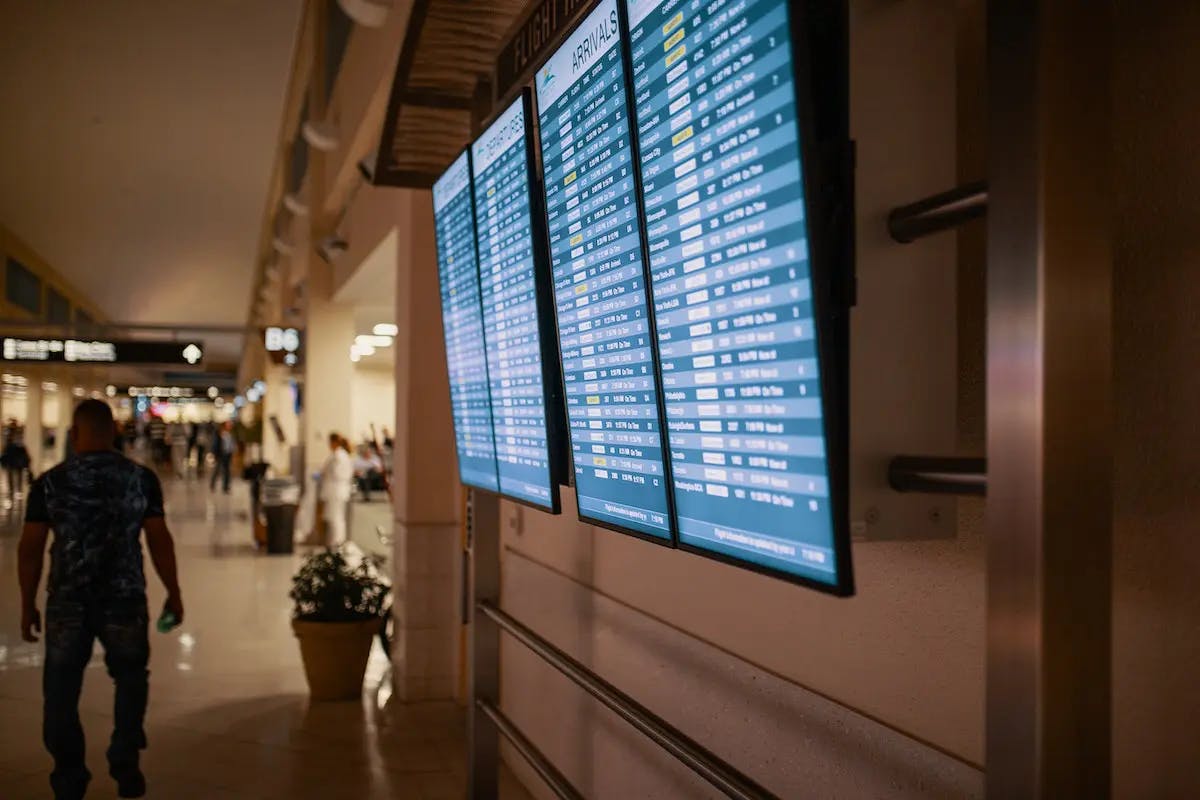Canadian Airport Codes: Why Do They Start With the Letter Y?
By Emma Martin | Published on 09 Oct 2022

If airport codes use letters in the name of the airport, such as JFK for John F. Kennedy International Airport in New York City or ATL for Atlanta, why are canadian airports using letter Y?
IATA and airport codes
Airport codes are unique three letter codes given to each airport. These are The International Air Transport Association’s (IATA) Location Identifier numbers. These codes started to be created and used when the first international flight services were established in 1919.
The IATA headquarters is located in Montreal, Canada. These three letter codes are used to simplify travel communication and make sure that each airport could be easily identified.
Canadian airport codes
Canadian Airport Codes are unique because they all begin with the letter Y. Rather than using the spelling of the airport name to create an identifier, many Canadian airport codes seem to be random combinations of letters.
For example, YQX is the identifier for Gander International Airport, and YYZ is the identifier for Toronto Pearson International Airport. Neither of these make sense at all if airport codes want to match the name of the city where they are located.
In order to keep each airport code unique, it makes sense that not all airports can use abbreviations for their names.
But WHY use the Y for Canadian airport codes?
Before IATA started to create airport codes, Canada was already using airport identifier names for their airports. They used these codes to make it easier for pilots to navigate to different airports.
Originally, these codes were two-digit codes that identified where the airport was, and whether they had a weather or radio station tower. “Y” stood for yes, meaning they did have a radio tower, and “W” stood for without, meaning they did not have a radio tower.
Eventually, the IATA started assigning airport codes to airports all over the world, and Canada kept their “Y” and “W” letters at the beginning.
That explains the “Y” used in most Canadian airport codes, but the other airport identifiers still seem completely random. However, when you look into the history of airport codes, they make perfect sense.
The two letters following the Y in Canadian airport codes were originally created to identify old telegram stations on the Canadian National Railway System. For example, the “UL” at the end of Montreal’s airport code was the radio beacon identification code for Kirkland, a nearby town. The “YZ” at the end of the Toronto Pearson International airport identifier is the Morse code identifier for Malton, where the airport was built.
Why is “Y” not exclusive to Canadian airport codes?
Although all of the letters in Canadian airport codes seem random, they all have meaning and historical significance if you want to look them up. Be careful not to assume that all airport codes starting with the letter “Y” are located in Canada.
There are other airports, like Yangambi, Congo (YAN) and Yasawa Island (YAS) that start with the letter Y and are not in Canada.
Major Canadian Airport Codes
| Airport Name | Province | Airport Code |
| Calgary International Airport | Alberta | YYC |
| Edmonton International Airport | Alberta | YEG |
| Fredericton International Airport | New Brunswick | YFC |
| Gander International Airport | Newfoundland and Labrador | YQX |
| Halifax Stanfield International Airport | Nova Scotia | YHZ |
| Greater Moncton Romeo LeBlanc International Airport | New Brunswick | YQM |
| Montreal-Trudeau International Airport | Quebec | YUL |
| Ottawa Macdonald-Cartier International Airport | Ontario | YOW |
| Quebec/Jean Lesage International Airport | Quebec | YQB |
| St Johns International Airport | Newfoundland and Labrador | YYT |
| Toronto Pearson International Airport | Ontario | YYZ |
| Vancouver International Airport | British Columbia | YVR |
| Winnipeg International Airport | Manitoba | YWG |
Traveling through Canada
When you travel through Canadian airports, check your airline code to make sure it matches your desired destination. It is wise to purchase travel insurance in case you run into any problems. You can save money or earn rewards points by using travel credit cards to purchase your airline tickets, car rental and hotel.
Make sure you get a valid passport as early as you can, and get to the airport early. All over the world, there have been delays in getting identification and reports of pilot and staff shortages. Be patient during your travels and remember to be kind.
